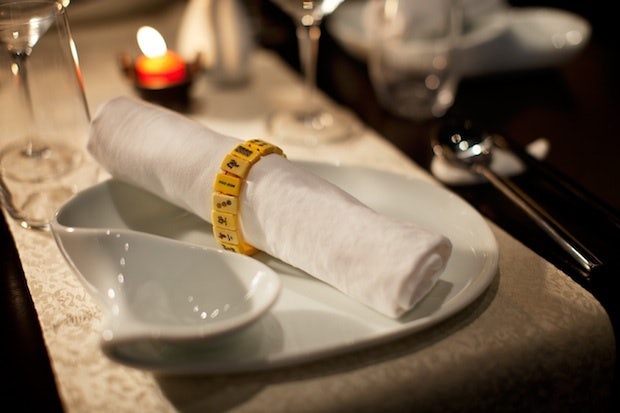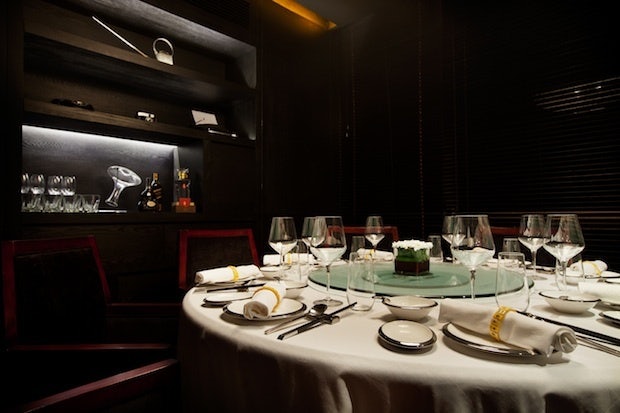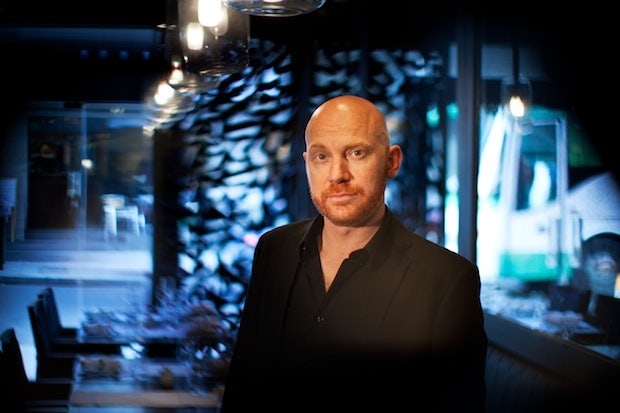"The Trend Right Now...Is Going Back To Really Honest Eating"#

In part one of Jing Daily's interview with celebrated Shanghai-based Greek-Australian chef David Laris, we discussed his newest restaurant venture,
Le Sheng#
, the particularities of the Chinese fine dining scene, and the possibility of expanding his Shanghai-based empire into international markets. In the second half of our interview, we talk to Laris about his upcoming projects, thoughts on Shanghai's culinary transformation over the past decade, and trends we can expect to see emerge in the bustling city within the next few years.
Jing Daily (JD): As a chef, how would you characterize the scene in Shanghai? Do chefs here get together and socialize?#
David Laris (DL):#
Honestly, I'm so busy I don't invest any time in it. Not because I'm a snob or anything, I'm just busy. A lot of chefs here do hang out together, but I don't really have a social life per sé. I spend what little time I have with my family when I'm not working. But chefs do help each other out sometimes, though there's not a lot of openness -- it's super-competitive in terms of how there's more restaurants than customers here. You have to fight for position. But I think I get along with most of them...I'm not sure. (laughs)
It's kind of like the fashion industry. Everybody's jockeying for position and trying to keep secrets. At the top of the market, everyone's trying to win. That said, there's a lot of healthiness. But everybody's so busy.
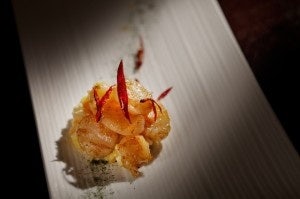
JD: So what new projects do you have going on that should be rolling out soon?#
DL#
: We're negotiating a new location for the
Purple Onion#
. We're in the final stages of a lease now, so if that happens we'll open this year. I'm going to reimagine and refresh that concept a bit. I consulted with Swire for many years, and we've been working with them on the EAST Hotel in Beijing, which we'll launch in September. There's a few other concepts coming up with those guys, a couple years away, but we've started the conceptual process.
Then we're also looking to expand things like the
Funky Chicken#
, and I want to do more
Fat Olive#
s.I'm putting a lot of energy now into helping my guys understand and improve their KPIs (Key Performance Indicators -- JD), the business side and standards. I'm focusing less on expansion right now and more on the solidification of standards. We'll see from there. There's the personal side, too, like shows and private demonstrations I do for big brands. There seems to be a lot more development on that, which is good because it increases my presence online -- Weibo and everything. I want to be present online in the China market as well as a person in China.
My pet thing that I'm trying to get off the ground again is a new fine dining version of
Laris#
(2003-2010 -- JD), a re imagining of that. And I've got some funky concepts in my head. One involves a big space and another a small place. What
12 Chairs#
has allowed me to do is develop a kick-ass repertoire of dishes. I get feedback from the people at 12 Chairs, and I've had a year and a half in my own head, my own lab, I'm not under pressure.
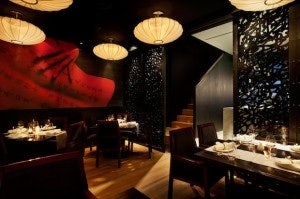
JD: How would you characterize the progression from when you first came to China, nearly 10 years ago, to now, to 10 years from now?#
DL#
: I don't know. I certainly see how much I've grown and changed, and I've learned some things and still make the same mistakes. But I've grown as a person. In the future I'd like to be in a place where everything's stabilized and you get to the point where you can enjoy the fruits of the labor, let's say, and have a restaurant I can be at all the time.
JD: What sorts of trends do you expect to see popping up in the Shanghai restaurant scene in the next few years?#
DL#
: The trend right now, which I think will continue, is going back to really honest eating. I mean, fine dining has its place, but I think stuffy fine dining is dying. Restaurants can have great food and great standards, but they don't have to have a stuffy, inaccessible vibe. I think that's going to go away and we're going to see a move towards small restaurants, intimate spaces, or if they're big they'll still have that warmth. With real food, unpretentious but well-prepared. I still like fine dining, but I'm not going to do a big fine dining restaurant. I think the market isn't there.

Especially in this market, China, there's going to be much more emphasis on organics, sustainability, traceability. I think how that's applied to the way a restaurant feels will have an impact on that as well, and its design -- as we try to use more carbon-neutral and sustainable products. In terms of actual food styles, I don't see that any one particular food style has dominated, it's more of the approach to food. Because you look at the scene in America and it's all New American cuisine, which is just really good bistro food that has traceability and a farm-to-table vibe. That's a trend you'll see more of. Sort of what I do at
Downstairs#
. That kind of layering.
And I like big restaurants, by the way. They're fun to run and operate. But when they're made so stuffy, I think some of those guys are in trouble. If you look at a place like Mr. & Mrs. Bund [by Paul Pairet], there's nothing stuffy or pretentious about it, and it's absolutely rocking. The food's extremely good and it's a fun place. Then you look at a place like Jean-Georges in Shanghai, which is a great restaurant, but maybe he needs to reinvent it somehow, you know. You see a lot of fine dining restaurants on the Bund that are not full, they're not doing well, because they've missed that point about making it fun and accessible. Because that's where the market is.
JD: Do you feel that this shift is the result of people in Shanghai caring less about status as culture changes?#
DL#
: That's a very valid point. I think the ultimate thing that happens is that when a market becomes sophisticated, you know you don't need to pretend to be somebody in order to be somebody. I think that's changing in Shanghai, and I think there's enough places that will still have that [status-obsessed] market. But is it the majority? I don't know. I think it's going to surprise people and it's going to grow faster than people might realize.
You look at some things here, like the big private cigar club thing. I mean, I wouldn't be investing lots of money into places like that. Because I don't think the market's big enough. Young Shanghainese guys with lots of cash, they like that private club thing, but you know, they're going to build those clubs themselves. When I go into a room and don't feel the energy of the place, I can pretty much tell whether it's going to work or not. And it's all based on the kind of vibe it gives off. A lot of them get it so wrong and spend so much money on it.Then they fail on service and on food and you think, what's the point?
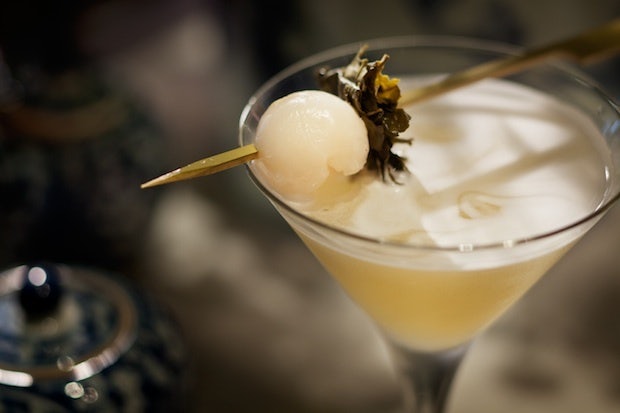
JD: So what would you say are some of the key things that restaurants need to thrive in Shanghai?#
DL#
: The management that gets brought in to run a place, it's so crucial. You look at a company like Swire -- why do they do so well? They're only now venturing into restaurants and hotels, and they're doing well because they've got a grounded philosophy about their own people, who they are, their approach to food and service, keeping it real but at the same time things can be refined. And they're rocking, here and in Beijing and Hong Kong. And I share their philosophy, which is why I work with them. You go into some places, and they've got an F&B manager who thinks he's all-knowing, who clearly isn't listening to his staff, isn't listening to his customer, because he's coming from a position of arrogance and self-importance.
At the end of the day, that's not what we should be about as restaurateurs, or as hoteliers. Remember, the hotel industry, they're innkeepers. They're not gods, they're innkeepers. They're about opening their doors and being welcoming to every guest. And it's the same for a restaurateur or a chef. We're not gods, we're here to make people happy and provide an awesome experience. And if we're not listening to our customers, not listening to ourselves and our team, we're going to fail. I have open forums with my staff where we talk over what's working and what's not, and you'd be surprised. It really empowers the staff and gives them a strong connection to the brand, and you learn so much.
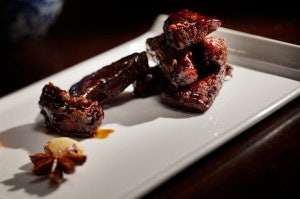
JD: How does customer feedback influence your designs or menus?#
DL#
: I like to listen to people. And we gather data in various ways. Really there's two types of information you get back from customers. There's random and there's personal opinion. If you get 20 of the same personal opinions, you know that there's a trend. It's not a one-off attitude, it's something we need to look at. Then there's the general feedback, you know. I think people who give you feedback are people who like what you do and want to see it even better. We gather all of the feedback up and we listen to it. It comes up at our weekly meetings and if there's ever a service issue I insist on following up with a guest. I think it's never enough. If you stop listening to your guest, then you're in trouble. Same if you stop listening to the team, because there the ones interacting with the guests. In order to get people to exceed expectations, which is how it should be, they have to want to. The staff have to feel engaged, and they have to feel like part of a family, part of a community. It's all cliché, but it's all true.
That's all part of our ethos. But do I think we get it right all the time? Of course not. I think we're working really hard at getting it right. And we'll continue to work hard at getting it right.
Le Sheng#
Anfu Court, 308 Anfu Lu
near Wukang Lu, Shanghai
安福路308号, 近武康路
Hours: Lunch: 11am-2:30pm; Afternoon Tea: 2:30pm-5pm; Dinner: 5pm-11pm
Tel: 5406-6011
Map
